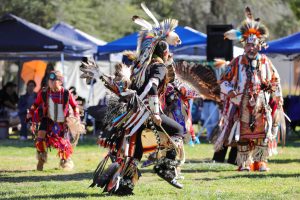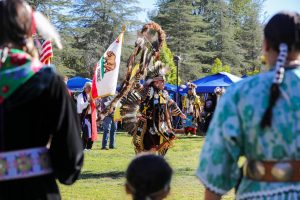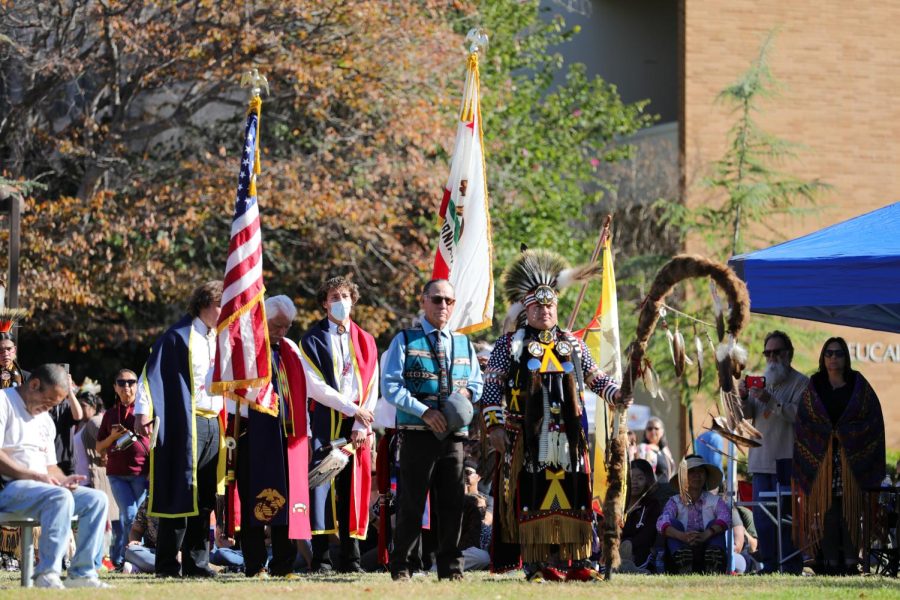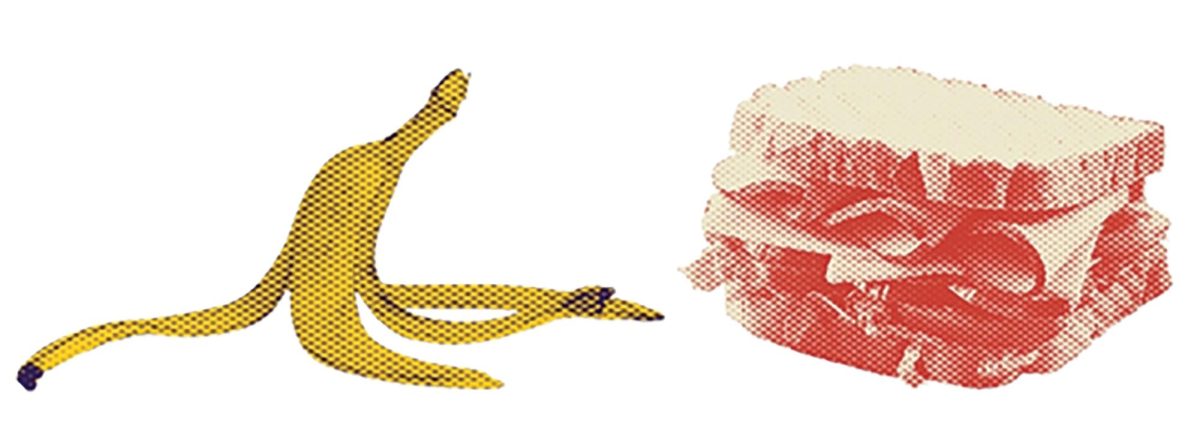Through traditional dance, song and art, the campus comes alive with Native American culture as tribes from across the country participate in the annual CSUN Powwow, hosted by the American Indian Student Association (AISA) and American Indian Studies Department.
This year marks the 39th Powwow at CSUN, which was first held where the University Student Union (USU) now stands. The event will be on Nov. 30 from 10:30 a.m. to 8 p.m. on the Sierra Quad grass.

The focal point of Powwows is the dancing circle, surrounded by participating tribes. The event officially begins after the grand entry opening ceremony, led by four head dancers who follow closely behind an eagle staff. The staff represents all tribal nations and the connection between American Indians and their homeland.
Following the procession, representatives of the Fernandeño Tataviam Band of Mission Indians bless the circle. After the blessing, only those participating in the dance may enter the circle. One of the most important aspects of Powwows are the traditional regalia the dancer’s wear. ? They are commonly handmade from beads, feathers and porcupine quills and hold deep cultural significance. Eagle feathers are very prominent in regalia but must not come loose and fall. If a feather does fall, it is believed to be an omen of death.
The drums play a vital role in the ceremonies, since the majority of the gathering is based in song and dance. A northern and southern drum take turns guiding the dancers throughout the day. While there are some aspects that appear at every Powwow, such as the Gourd Dance and the grand entry, events have different songs and cultural ceremonies which make each gathering unique.

Vendors selling food, arts and crafts are also a staple of the Powwow. Frybread, a common staple, will be available, with other items such as handmade crafts being sold by local artists. In the past years, vendors have lined the crosswalks in front of the library.
The CSUN Powwow concludes the observance of American Indian Heritage Month, honoring ancestral traditions. Students can engage with the community by attending AISA meetings, which are held every Thursday at 5 p.m. at La Casita and their corresponding events such as guest speakers and workshops.















